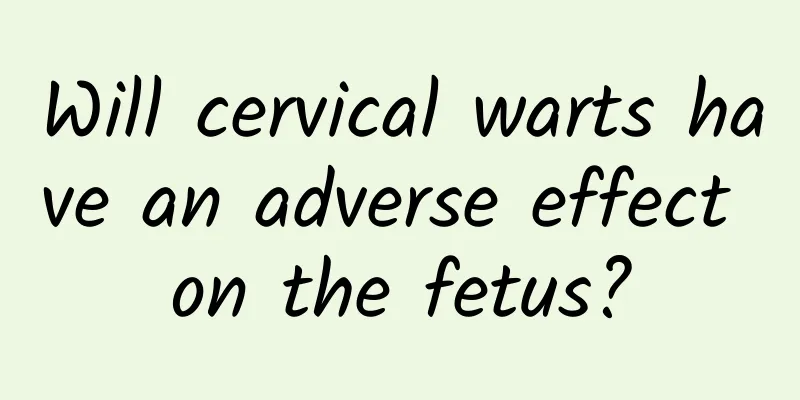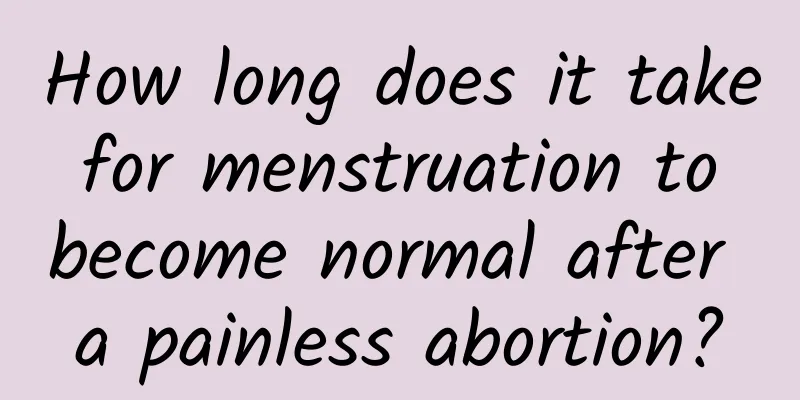Will cervical warts have an adverse effect on the fetus?

|
Once you are infected with cervical warts, you should try to prevent them in terms of diet and hygiene, and do a good job of use and disinfection. It is recommended that you refrain from sexual intercourse during this period to avoid cross-infection. It is also recommended that you refrain from using Chinese and Western medicines, as they will affect the fetus. It is recommended that the fetus be infected through the birth canal of cervical warts. When giving birth, you should choose a cesarean section. If the situation is serious, you should receive treatment in the hospital and avoid strenuous exercise. So how to treat cervical warts in pregnant women? What should you pay attention to in order to recover from the disease? 1. If you are infected with cervical warts during pregnancy, you should first use physical methods such as laser to control the clinical symptoms, and then receive thorough treatment after the baby is born. You cannot use medication now to avoid affecting the fetus. It is recommended that the fetus be infected through the birth canal with cervical warts, and you choose a cesarean section during delivery. 2. The treatment of cervical warts in pregnant women is sometimes complicated, and clinically, it requires consultation between obstetricians and gynecologists and venereal disease physicians. Cervical warts that appear during and after pregnancy should be actively treated. Since the mother's genitals become congested and softened after pregnancy and certain drugs will affect the fetus, a combination of physical therapy and drug therapy can be used for pregnant women, and the treatment plan can be selected according to the location, size, and number of warts. 3. There is a problem of recurrence after treatment of cervical warts. Recurrence most often occurs within 3 months after treatment. Generally speaking, as time goes by, the patient's contamination decreases and the possibility of recurrence also decreases. If there is no recurrence one year after treatment, its infectiousness and possibility of recurrence are extremely small. Therefore, young women who have not had a recurrence for more than one year after treatment can consider pregnancy, but after pregnancy, they should have regular prenatal examinations and pay attention to the cleanliness of the urogenital tract. |
<<: What are the effects of cervical warts on pregnancy?
>>: Can I get pregnant if I have cervical warts?
Recommend
Is physical therapy for cervical erosion extremely painful?
Is physical therapy for cervical erosion extremel...
How to take care of pelvic peritonitis?
We are all very familiar with pelvic peritonitis,...
5 causes of ectopic pregnancy
Ectopic pregnancy means that the embryo begins to...
Is irregular menstruation hereditary?
Can irregular menstruation be inherited? Patients...
What are the causes of dysmenorrhea?
Dysmenorrhea can be caused by colds, psychologica...
Cervical precancer can shorten life expectancy by several years
How many years will cervical precancerous lesions...
What are uterine fibroids that grow outward called? Are uterine fibroids that grow outward serious?
What is the name of uterine fibroids that grow ou...
What are the common symptoms of vulvar leukoplakia?
Vulvar leukoplakia is a gynecological disease tha...
Detailed analysis of the causes of threatened abortion
Symptoms of miscarriage before 28 weeks of pregna...
Cleanse vaginal suppositories cure vaginal inflammation in young girls at menarche
Rongrong's parents divorced when she was five...
Can’t get rid of annoying extra fat? Drinking black coffee accelerates fat burning
[Key Points]: Coffee helps with weight loss. The ...
Several common symptoms of tuberculous pelvic inflammatory disease
It is very necessary for female friends to unders...
How to treat secondary amenorrhea with traditional Chinese medicine
The TCM treatment of secondary amenorrhea focuses...
What are the dangers of not sleeping well after abortion? How to solve the problem of not being able to sleep at night after abortion
Whether it is an artificial abortion or a natural...
Dietary taboos for chronic pelvic peritonitis
I believe that many people are already familiar w...









